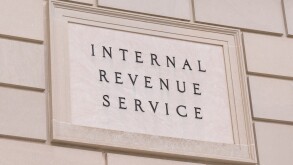The changes are designed to further improve Ireland's attractiveness as a location in which to invest in R&D related activities and to assist Irish enterprises in retaining and attracting key innovators.
Use of R&D credit to incentivise key employees
R&D tax credits can be used to reduce corporation tax liabilities and in some cases, where it cannot otherwise be used, qualify for a cash refund. Companies will now be able to use their R&D tax credit to reward key employees involved in the R&D process. Broadly, key employees are employees (other than directors) who spend 75% or more of their employment duties carrying out R&D and do not hold a 5% shareholding in the employer company.
This reward mechanism operates by allowing the company to surrender R&D credits to its key employees, who can then claim the surrendered credits as a deduction against their own personal taxable remuneration (subject to not reducing their effective tax rate to less than 23%). This innovative measure should provide a very useful and efficient tool to attract R&D activities, and the key individuals driving the R&D activity, to Ireland.
Introduction of volume-basis for first €100,000
A straight forward volume-basis approach to calculating R&D credits will now apply to the first €100,000 ($130,000) of qualifying R&D expenditure in each tax year. The existing incremental basis (tied to a base year of 2003) will continue to apply for qualifying R&D expenditure in excess of €100,000. This step is helpful for certain taxpayers who had an R&D spend in 2003.
Increase to the amounts of R&D spend that can be outsourced
Companies were previously limited when claiming an R&D tax credit for outsourced R&D costs to 10% of the R&D spend on activities actually carried on by the company itself (or 5% where outsourced to third level institutions). Finance Bill 2012 now increases the limits to the higher of the existing percentages or €100,000. Consequently, it is possible to claim a credit for €100,000 of outsourced R&D activity in every tax year, without the need to refer to percentage limits.
Relief for successor companies within a group
Where a company with unused R&D tax credits is dissolved in circumstances where a successor group company continues to carry on the R&D, the successor company will now be entitled to claim the unused R&D tax credits against its corporation tax liability subject to certain conditions. This relief will also extend to qualifying R&D expenditure on buildings.
Incentives welcomed
The proposed R&D incentives are to be welcomed and contain beneficial changes for both large and small enterprises. The employee incentive provisions are likely to appeal particularly to large multinational while SMEs and indigenous companies are likely to benefit from the changes to the volume basis and the increased outsourcing limits.
Joe Duffy (joseph.duffy@mop.ie) and Barry McGettrick (barry.mcgettrick@mop.ie)
Matheson Ormsby Prentice
Tel: + 353 1 232 2000
Website: www.mop.ie









